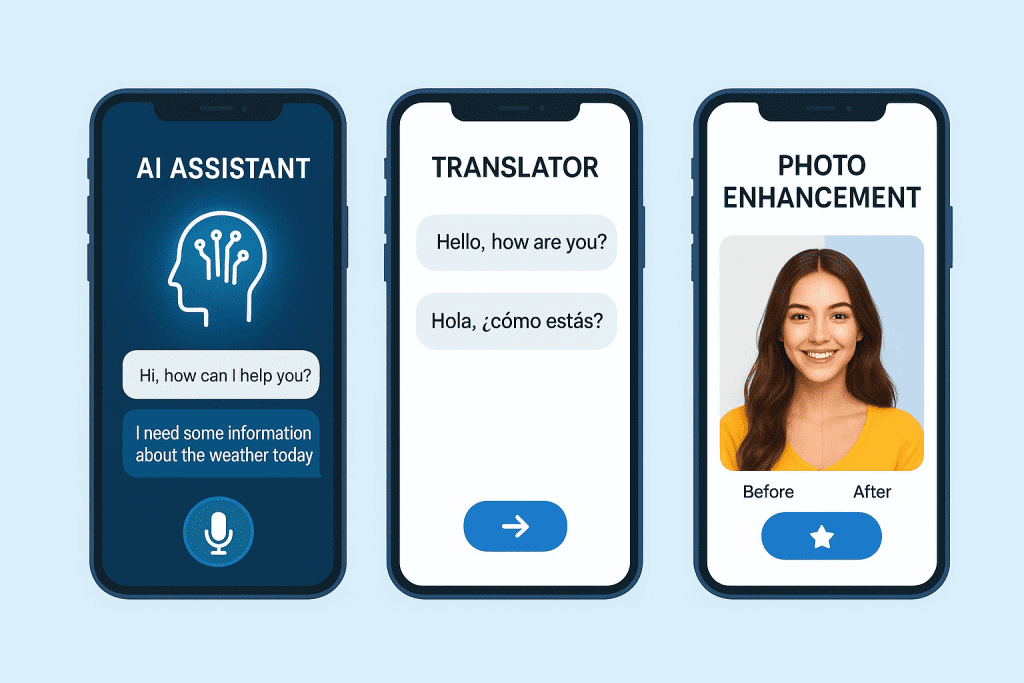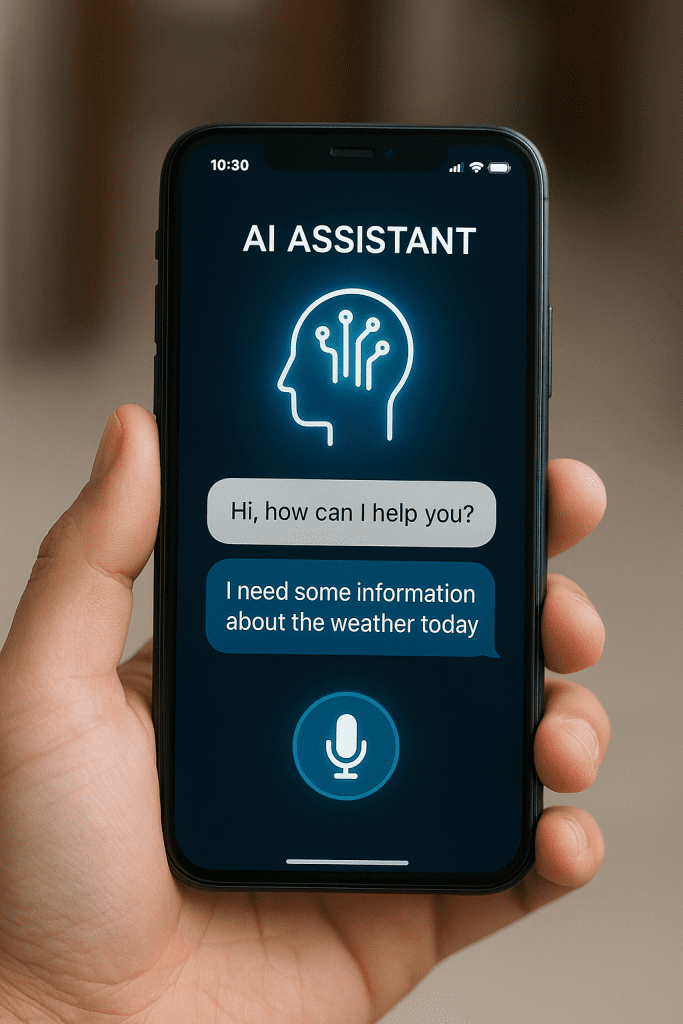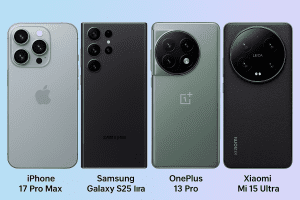
The Best Uses of AI in Mobile Phones: How Artificial Intelligence is Changing Everyday Life
Artificial Intelligence (AI) is no longer just a futuristic concept—it’s already in your pocket. Today’s smartphones are packed with AI features that quietly power smarter apps, faster decisions, and a smoother user experience. From photography to personal assistance, AI has transformed the way we use mobile devices.
In this post, we’ll explore the best and most practical uses of AI in mobile phones and why they matter for everyday users.
1. Smarter Photography and Image Enhancement
One of the most popular uses of AI in smartphones is camera technology. Modern phones use AI algorithms to:
- Automatically detect scenes (e.g., food, landscape, portrait).
- Adjust lighting, exposure, and color balance instantly.
- Apply noise reduction and sharpen details in low-light shots.
- Power portrait mode by blurring the background while keeping faces crisp.
This means anyone can take professional-looking photos without being a photography expert.
2. Voice Assistants and Natural Language Processing
AI makes digital assistants like Siri, Google Assistant, and Alexa possible. These assistants rely on natural language processing (NLP) to understand and respond to your voice commands.
With AI, you can:
- Set reminders, alarms, and calendar events hands-free.
- Send texts or make calls using only your voice.
- Control smart home devices directly from your phone.
- Ask complex questions and get real-time answers.
AI assistants are becoming more personalized, learning your habits and adapting to your preferences over time.
3. AI-Powered Security and Privacy
Mobile security has advanced significantly thanks to AI. Instead of just relying on PINs or passwords, many smartphones now use:
- Facial recognition to unlock devices.
- Fingerprint scanning enhanced with AI for higher accuracy.
- Behavioral AI that detects unusual activity (like unauthorized login attempts).
These improvements make mobile phones safer and reduce the risk of identity theft.
4. Predictive Text and Smart Keyboards
If you’ve ever noticed your keyboard predicting the next word or correcting typos automatically, that’s AI at work. Smart keyboards use machine learning to:
- Learn your writing style.
- Suggest relevant words or emojis.
- Correct spelling and grammar mistakes instantly.
Over time, predictive text gets more accurate, saving users both time and effort.
5. Personalized User Experience
AI studies how you use your phone and tailors the experience to you. This includes:
- Optimizing battery life by predicting app usage patterns.
- Suggesting apps or content based on your preferences.
- Managing background processes for smoother performance.
Some phones even use AI to adjust screen brightness and audio settings depending on your environment.
6. Real-Time Language Translation
With AI-powered translation apps, your phone can act as a real-time interpreter. This feature is especially useful when traveling or working internationally. Apps like Google Translate use neural machine translation to instantly convert spoken or written language into your native tongue.
7. Mobile Gaming and Entertainment
AI enhances mobile gaming by:
- Creating smarter, more adaptive opponents.
- Enhancing graphics rendering in real time.
- Personalizing game recommendations.
Streaming apps also use AI to recommend music, movies, and shows that match your taste.
8. Health and Fitness Tracking
AI has also made its way into health apps and wearables. Smartphones now use AI to:
- Track physical activity more accurately.
- Monitor heart rate and sleep patterns.
- Provide personalized workout or meditation recommendations.
This turns your mobile device into a pocket health coach.

Final Thoughts
AI in mobile phones is more than just a buzzword—it’s a game-changer. From smarter photos and stronger security to real-time translation and personalized experiences, AI is making smartphones more powerful, intuitive, and user-friendly.
As technology keeps evolving, we can expect even more AI-driven features that make our mobile devices smarter companions in daily life.
Recommended Reading
- Top AI Apps to Try in 2025
- Future of Artificial Intelligence in Smartphones
- How AI is Changing Everyday Technology
External Resources
FAQ
Q1: How is AI used in mobile phones today?
AI powers cameras, voice assistants, predictive text, and security features.
Q2: Is AI on smartphones safe?
Yes. AI enhances security with facial recognition, fingerprint scanning, and behavior monitoring.
Q3: What are the benefits of AI in smartphones?
Smarter photography, stronger security, better personalization, and real-time translation.


